“We didn’t want to it to be something that was just a dissemination of information. The intent was really to be conversational in nature,” said Robin Schumaker, a gifted education coordinator for Virginia Beach City Public Schools (VBCPS).
That’s why, when planning the event “Gifted: A Parent Conference on Social and Emotional Needs,” the VBCPS Office of Gifted Programs brought together a variety of gifted resource teachers (GRTs), gifted cluster classroom teachers, special education coordinators, parents, students and central office administrators to serve as conference presenters and volunteers.
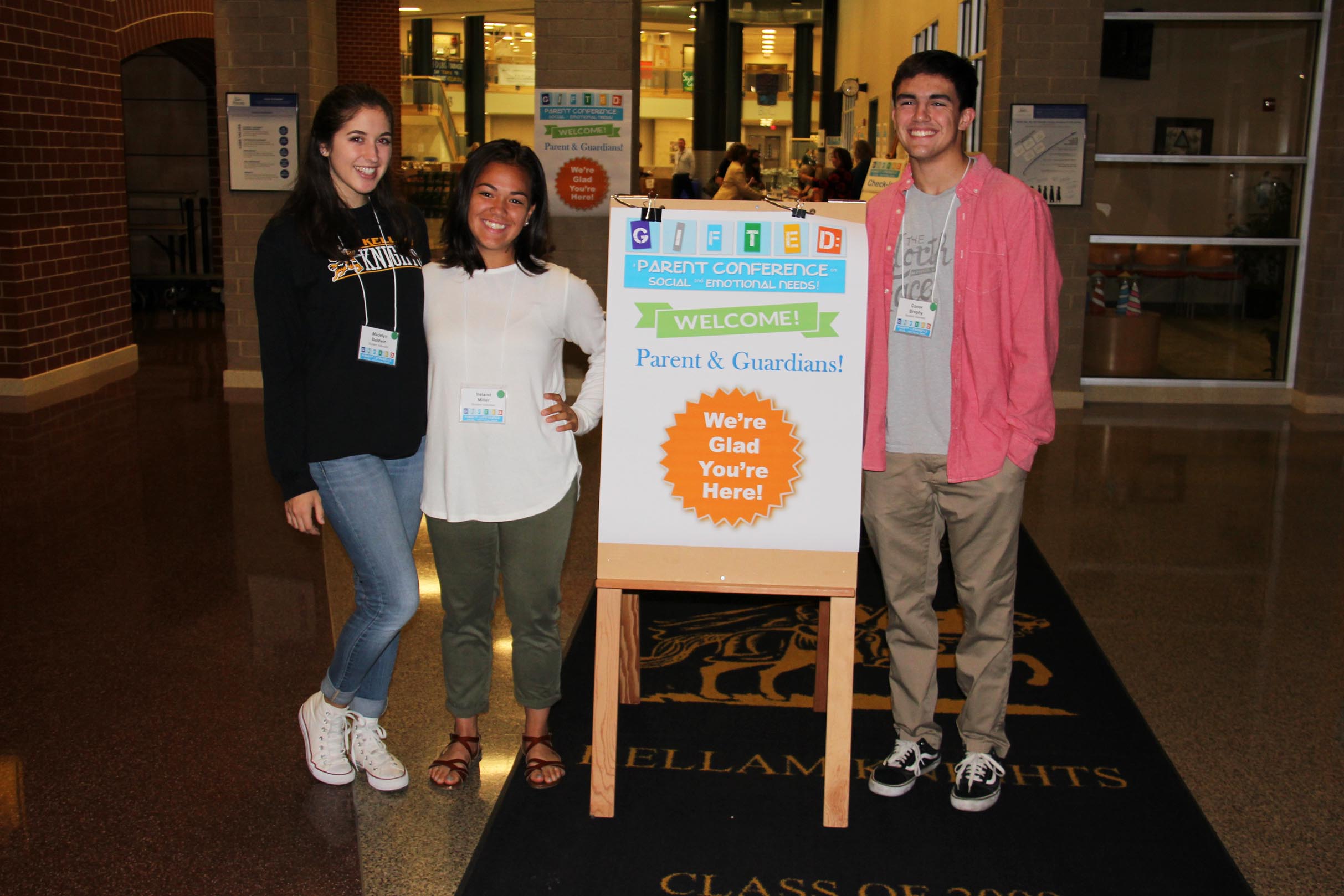
“This gives us an opportunity to purposefully partner with parents,” continued Schumaker, “to have them join us as partners in advocacy. It’s for them to network and forge relationships with other parents and to provide a platform for them to put names and faces together with our office.”
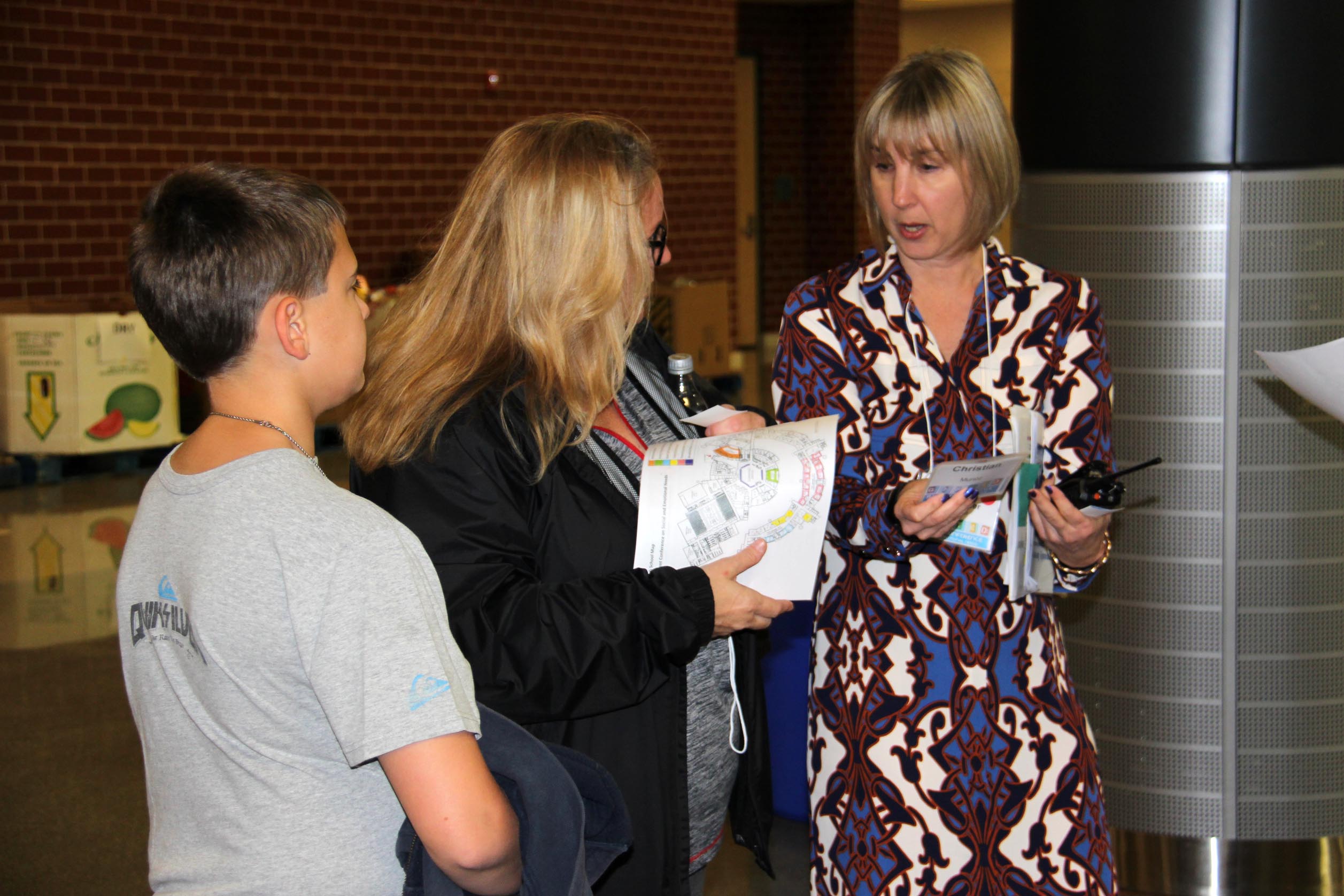
Following an opening session with remarks by Dr. Veleka Gatling, executive director of the Office of Programs for Exceptional Children, and comments from high school gifted students about their educational experiences and social-emotional needs, conference participants attended their choice of breakout sessions and book talks, including: Adolescence Amplified; The Highly Sensitive Child; Harmony at Home; Nurturing Self-understanding and Relationships; The Power of Introverts; Supporting Twice Exceptional Students; The Benefits of Choice and Responsibility; Find Balance and Success Using Growth Mindset; and Understanding our Gifted Children and Advocating with Them.
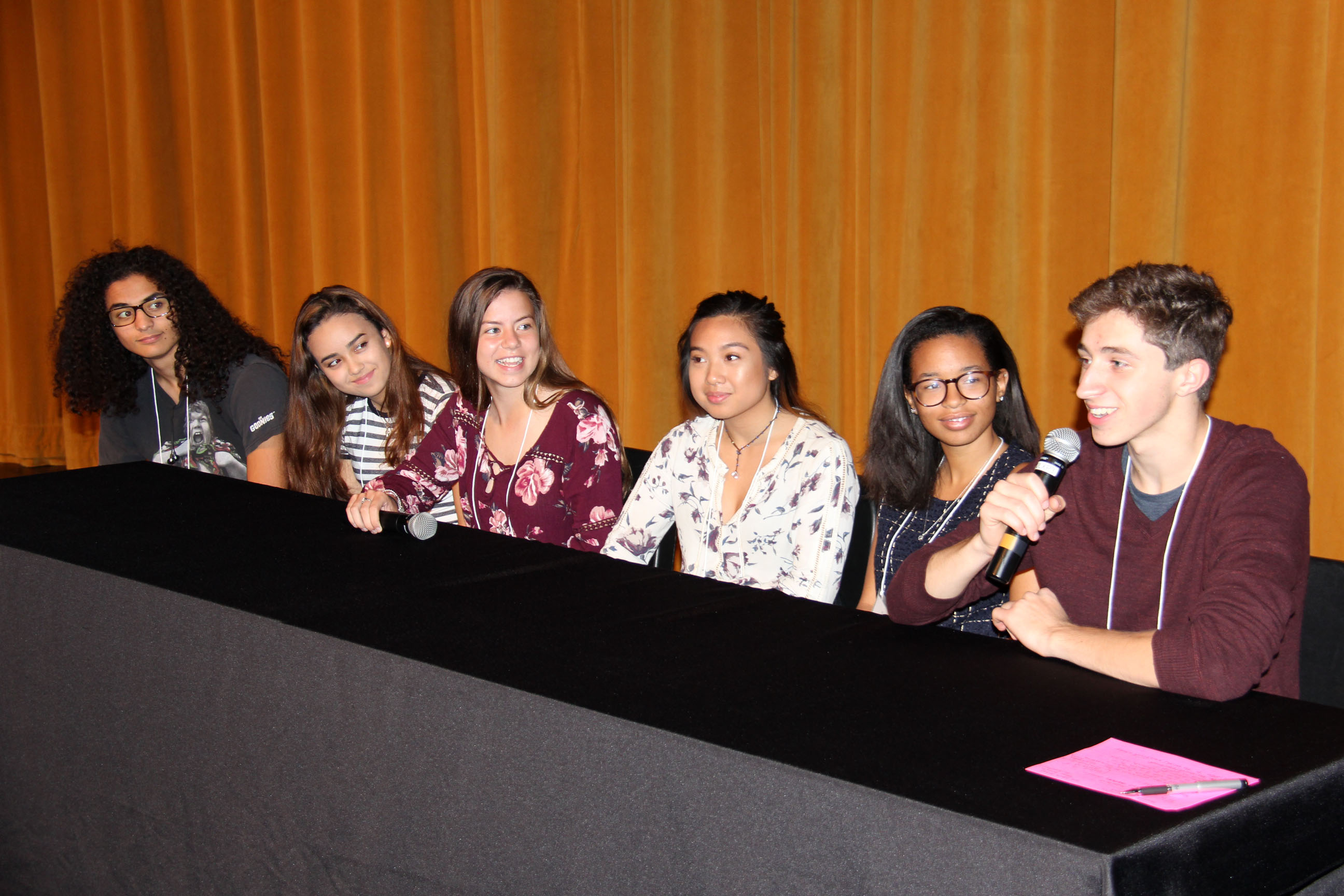
Meeting the academic needs of students has always been a focus of gifted programs; however, “their social-emotional needs are equally critical to the work,” said Schumaker of the conference’s focus.
Becky Winslow, Brookwood Elementary’s GRT, presented a session that was open to both parents and their children entitled, “Anxious, Curious and Gifted: How to Calm Anxieties, Build Curiosity and Make Sense of Your Superpower.” Anxiety was the topic of a session she attended at a gifted conference, and she wanted to share what she learned.
“It not only tremendously helped myself but then I started using it with students at school and I’ve seen the biggest difference,” she said. “I thought, this is something that seems so simple but I didn’t feel like I knew about it before.”
Winslow’s session explained how anxiety affects children and adults emotionally, physically and educationally, and she offered tips and resources to help individuals calm anxieties, stressing that it is a process.
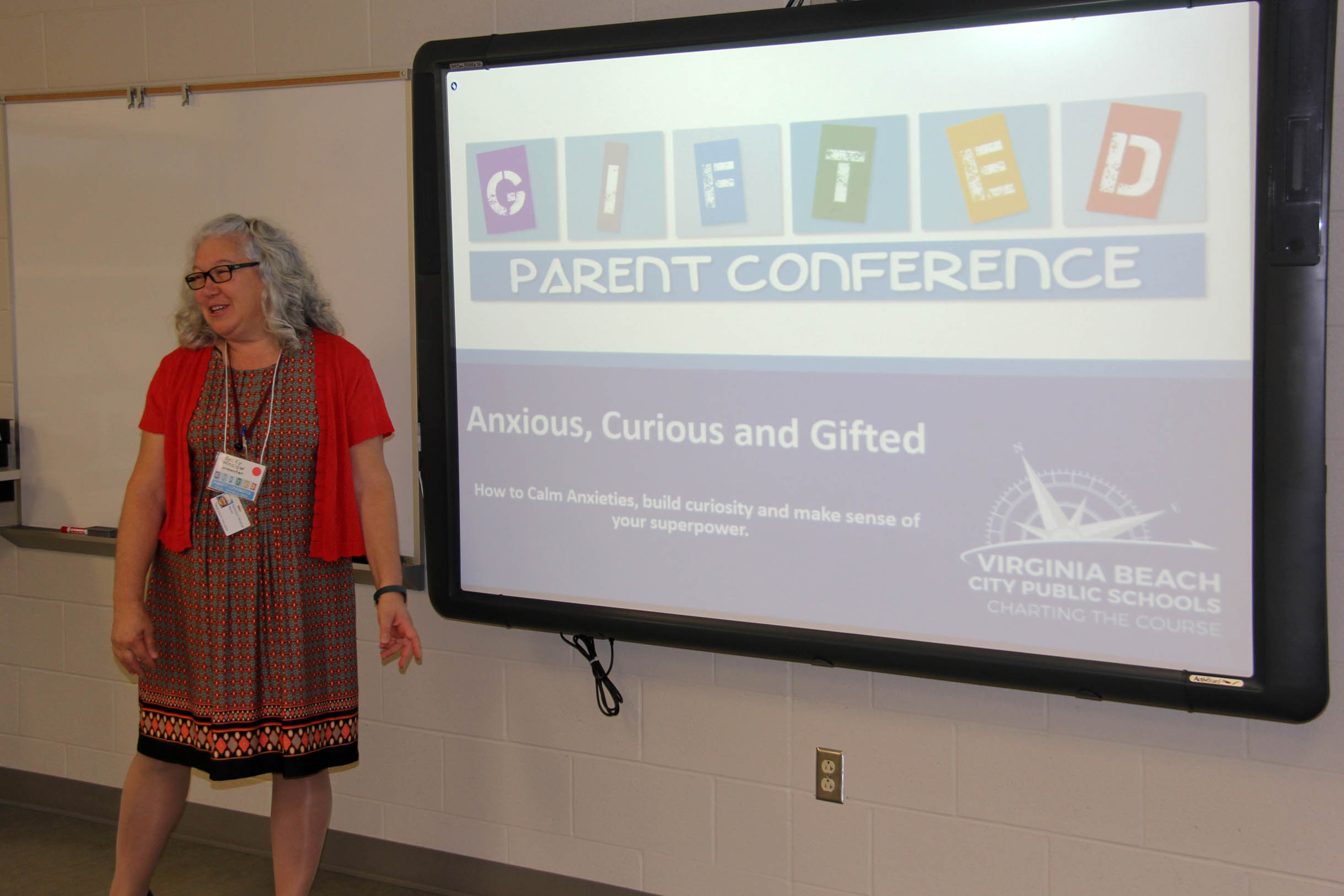
“It’s something we have practice and work on to keep calming those anxieties,” she said. “It’s mindfulness and actually breathing and letting your mind relax and stop the noise – I call it noise – in your head.”
Of her session, Winslow said, “I want them to take away that in our crazy, busy world and lives they can find time – it can be the drive to work or the bus ride to school or while I’m at my locker – to take a few minutes and take a couple of deep breaths and I can get through the next part of my day. It’s three minutes of still and relax.”
Relaxing is what parents and students could do in the conference’s “Center of Solitude,” which included aromatherapy, music and art. It was part of the Activity Resource Center, known as the ARC, where Salem Elementary GRT Melissa Ross, Luxford Elementary GRT Sharon Babbs and 10 high school student volunteers set up games and helped facilitate different learning stations.
“Students have choices of activities,” explained Ross. “There are games that are truly games, for joy and fun, and there are some centers where they will be learning about cognitive visualization – the optical illusion station– or cultural frame of reference. We have gifted pedagogy built into those stations.”
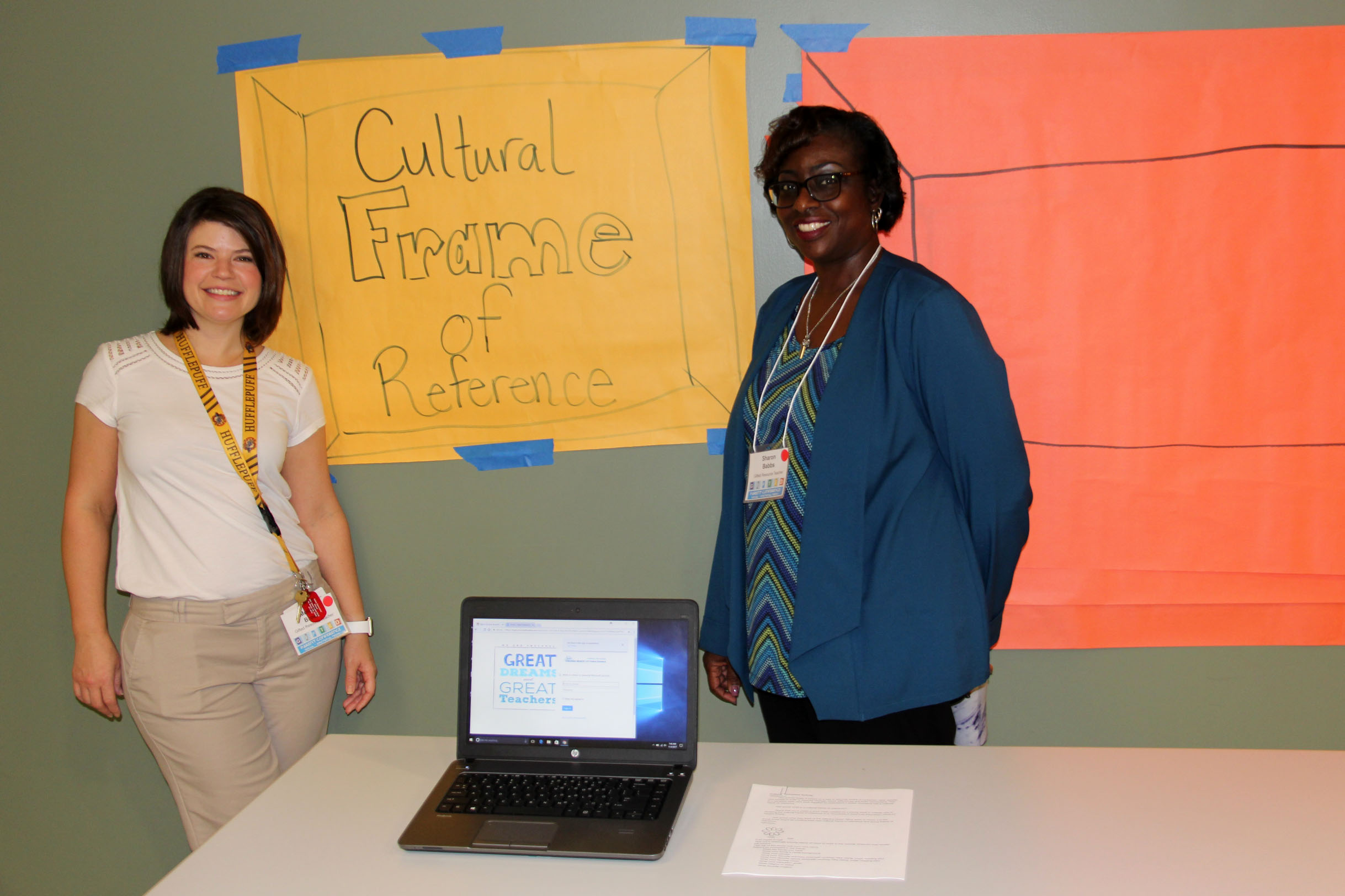
Ross talks regularly with parents and students at her school about giftedness, but she was pleased that several Salem parents and students attended the Saturday conference to learn even more about social and emotional needs.
“I really hope, especially for the elementary school students, that they come away knowing a little bit more about what giftedness means and in the context of me,” said Ross. “We want to know our students and we want to know what their particular challenges are but even more we want them to know themselves.”
Learning more about oneself was part of what Winslow covered in the “Make Sense of Your Superpower” portion of her session.
“The superpower part is really getting to know who you are inside. Besides being a student, an athlete, a son – who are you really?”
Winslow had each participant put the short answers to various questions in sections of a paper shield. How would you describe yourself? How do you want other people to see you? What are you passionate about? How do you spend your time?
“It’s just to get them to identify what they look like as a big picture and then to reflect on that: If there’s a part of your shield you’re not happy with, what can you do to change it?” said Winslow. “We won’t be able to answer all of that in one session. It will give them something to think about.”
Reflection and understanding were some of the takeaways Shumaker hoped attendees would experience.
“We hope that parents have a greater understanding of our work and our commitment to not only academics, but in particular, the social and emotional needs. We hope that they will better understand the resources and different things that we can offer them in terms of support. And most importantly, to provide them with some tools that they can use immediately either conversationally or otherwise with their gifted children.”
